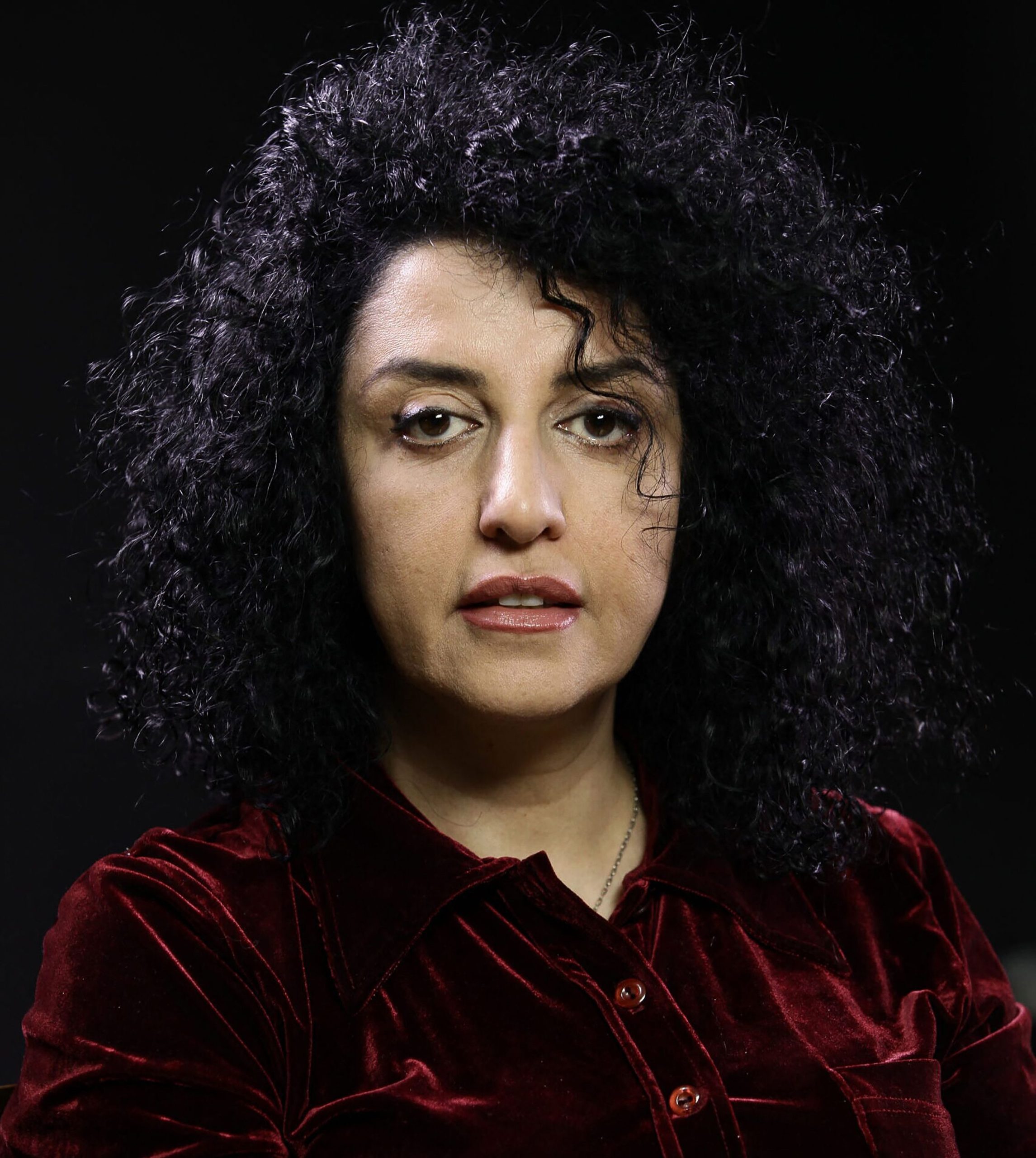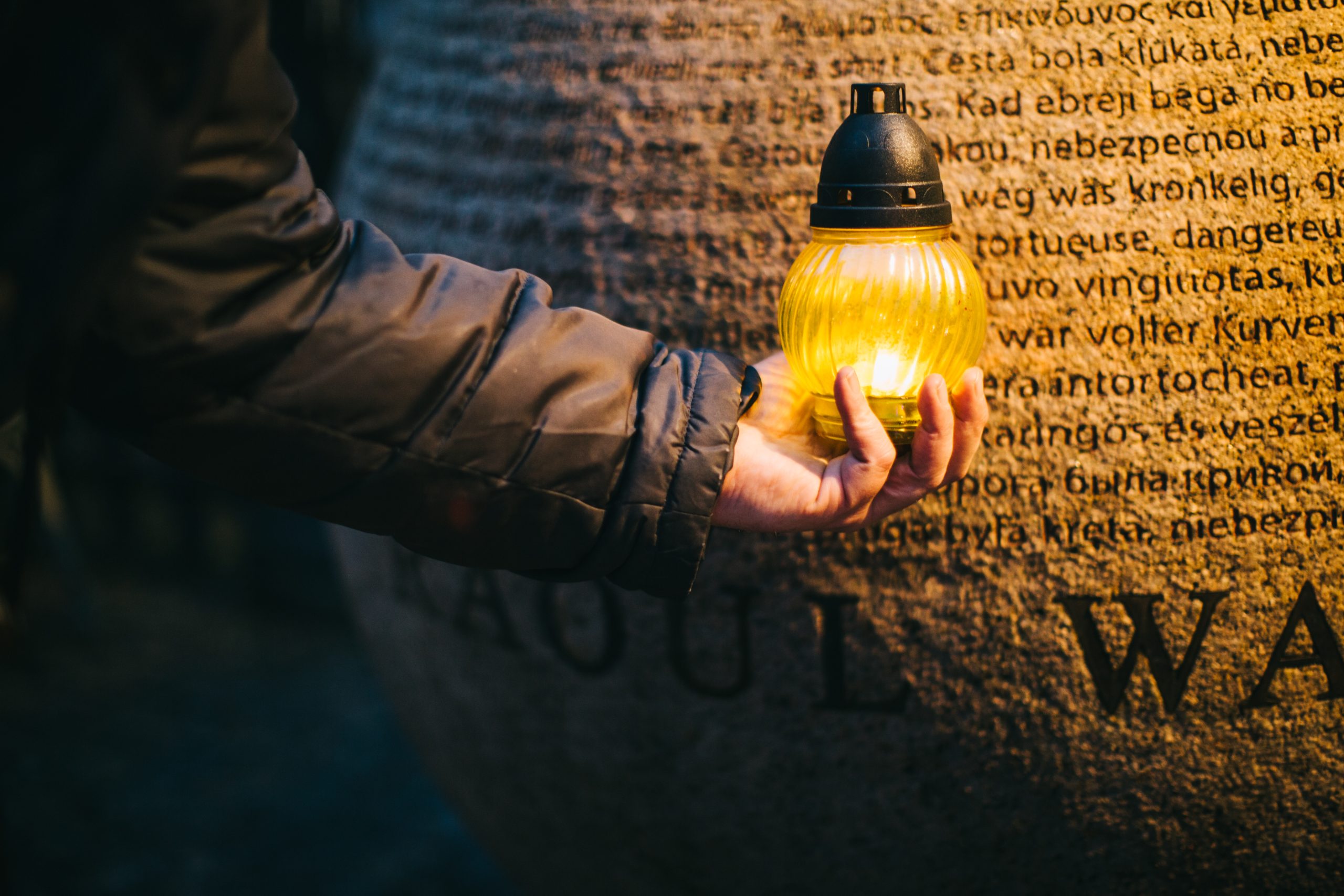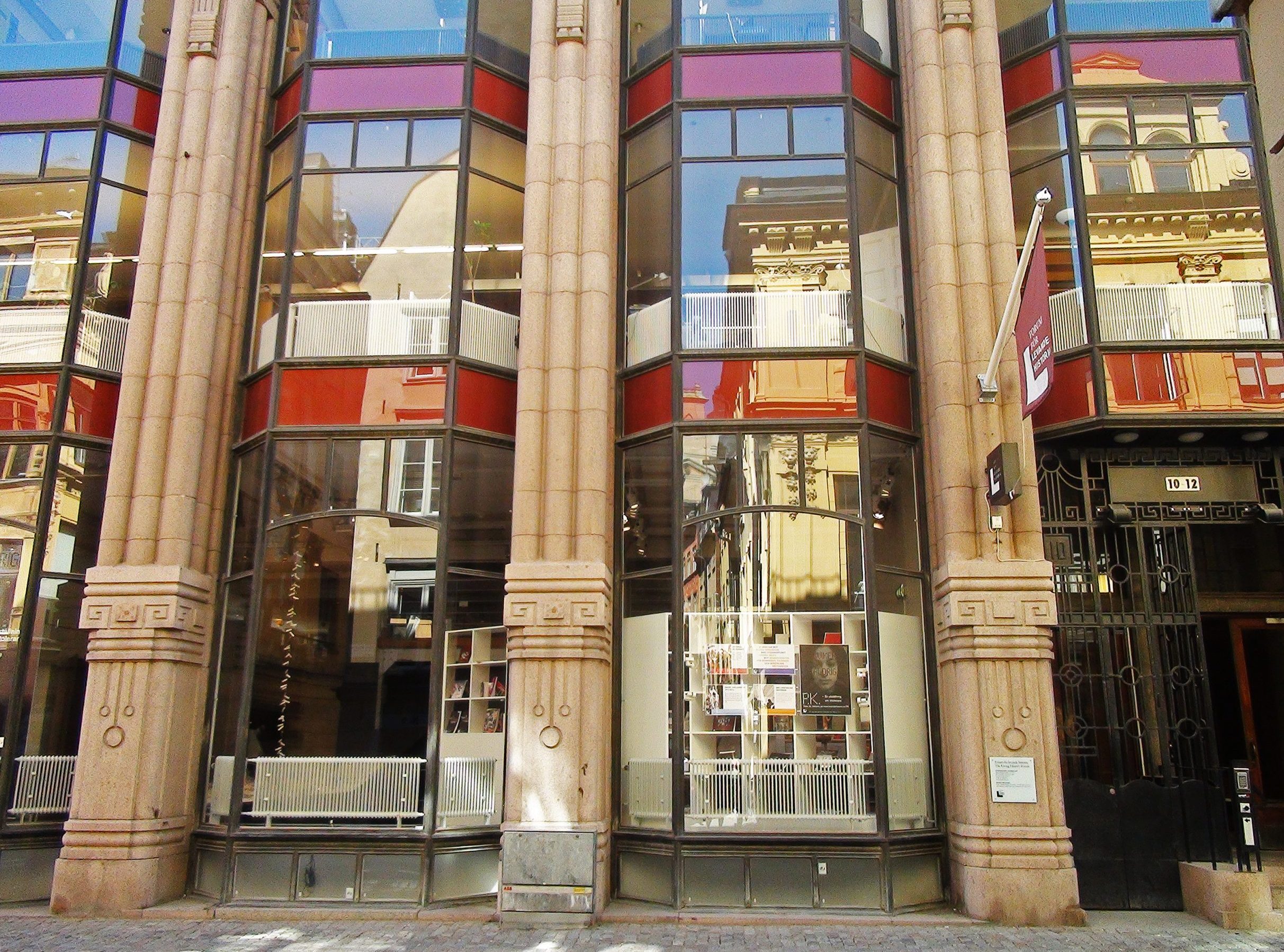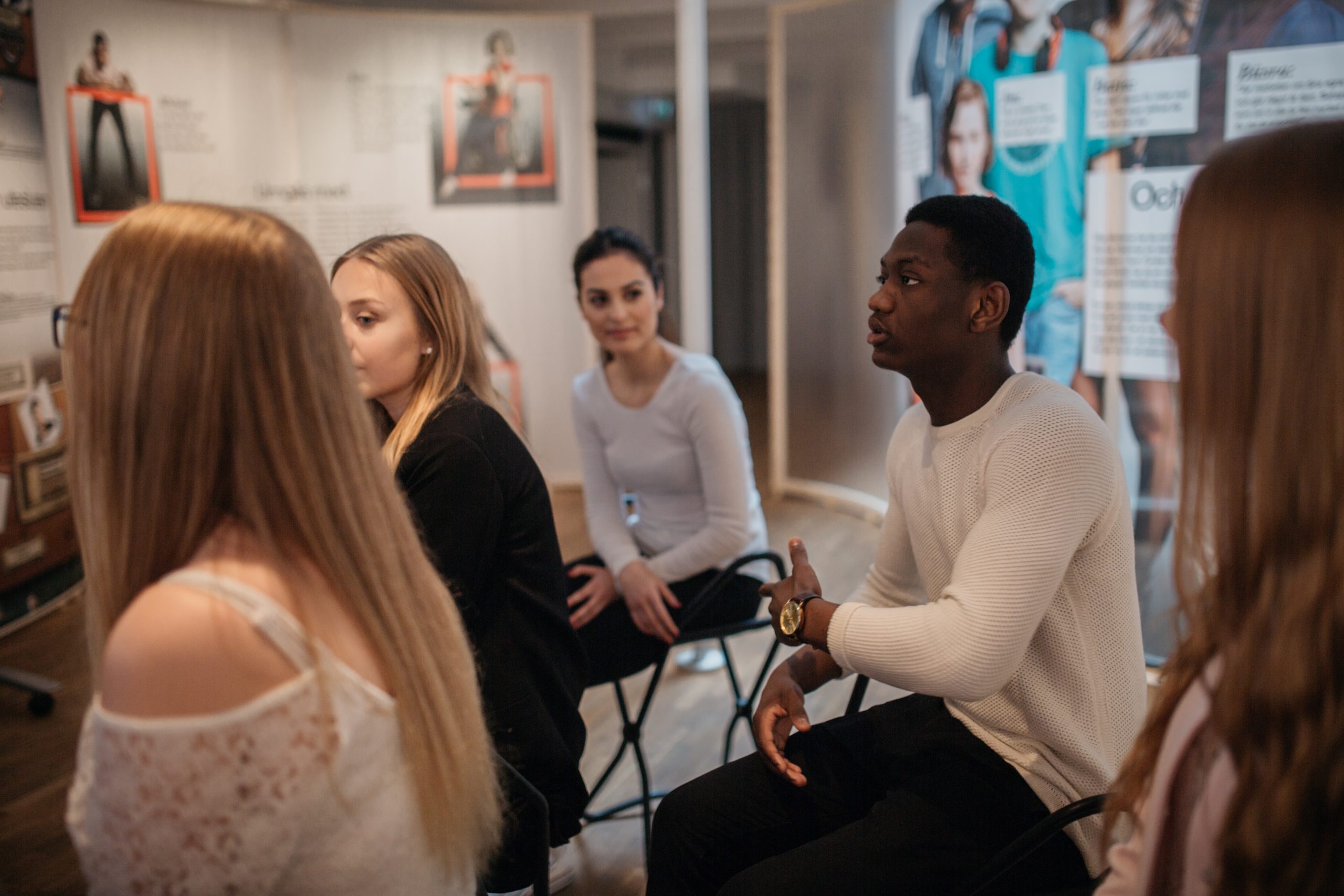Narges Mohammadi
Learn about Narges Mohammadi, recipient of the 2011 Per Anger prize to human rights defenders.

Narges Mohammadi winner of the Per Anger prize 2011. Photo by Narges Mohammadi Foundation/ AFP
Facts about Narges Mohammadi
Narges Mohammadi is active in the Iranian organisation Defenders of Human Rights Center, which provides defense attorneys to political prisoners.
She is also one of the founders of the Iranian National Peace Council, which consists of writers, artists, lawyers and activists working for human rights in Iran.
Narges Mohammadi was awarded the Per Anger Prize for 2011 and was nominated by the International Commission of Jurists
In 2023 Mohammadi was awarded the Nobel peace prize.
She is currently in prison in Iran.
“They came at ten o’clock at night. The police stormed in and arrested Narges in front of the children.” Narges Mohammadi’s husband Tagni Rahmani, living in exile in Paris, tells the story of the night when Narges was arrested and jailed."
Interview with Taghi Rahmani, husband of Narges Mohammadi
About Sapiyat Magomedova
Narges Mohammadi is a spokesperson and vice chairman of the Iranian organisation Defenders of Human Rights Center, which provides political prisoners with defense attorneys. She has been released from prison due to poor health, and is now living under house arrest in Tehran.
Narges Mohammadi is also one of the founders of the Iranian National Peace Council, which consists of writers, artists, lawyers and activists who work for human rights in Iran. On account of this, she has been persecuted by the authorities for several years.
Taghi Rahmani recalls the day when his wife was arrested and taken away.
- They stormed the flat, it was the security police who came. They did not have any warrant for Narges’ arrest, but they had an unrestricted order to storm and search the premises. For three hours, they turned the whole house upside down in front of me, Narges and both children. It was horrible, the children cried. Narges was very strong and brave, she was very good with the police, all the while trying to calm the children. When they took Narges away, our daughter Kiana tried to hold her back. It was heartbreaking. Narges told me later that when she was sitting in solitary confinement, she saw that scene before her eyes over and over again.
Interview with Taghi Rahmani, husband of Narges Mohammadi
Narges had been arrested several times before. During 2010, she was detained for almost a month. The treatment she was subjected to then led to her being in very poor physical condition when she was released on bail. That same year, she was also fired from her job as an engineer because of her political involvement.
On September 28, 2011, Narges Mohammadi was sentenced to 11 years in jail in an attempt by the Iranian government to stop organisations working for human rights. Narges was put in solitary confinement and after 30 days she fainted. She couldn’t move and was paralysed. She lost a lot of weight, which was the reason the prison doctor recommended that she should be released.
The sentence has not been served, so is she on some kind of parole?
- Yes, they can arrest her again whenever they want. After six months she got better, but the problems didn’t go away completely. At first, she could suffer fits of paralysis two, three times a day. According to the doctors, she is suffering from a neuropsychological disease, and as soon as she feels strong pressure she loses the ability to move.
Is she at home with the children now?
- Yes, she is living with my mother and the children are with her. At the moment she is feeling a little better.
Taghi Rahmani, who himself has been imprisoned for a total of 14 years, risked a new prison sentence and was therefore forced to go into exile. But Narges cannot follow her husband.
- She has had a travel ban since 2007, and it is still in force. She is under constant surveillance and they interrogate her regularly.
What has happened to Narges since she received the Per Anger Prize in 2011?
- Of course the prize has affected Narges’ life, and she has also received a number of other awards as well, from other countries. These awards have two sides, one is that it becomes a form of protection from government oppression, but the other is that the government begins to control you even more. You become aware and more responsible when you receive awards like these, and they give Narges strength to continue her work as a human rights activist.
In practice, what does her daily life look like at the moment?
- Narges is trying to be active on her own, but the organisation she belongs to is not allowed to function. However, she supports the struggle to the extent that she can. She tries to lend her support to the families of other political prisoners, goes to meetings that are held. At the same time, she of course has to take care of the twins (their seven-year-olds, a girl and a boy).
Where does she find the strength to go on?
- Narges has been a happy and very active girl right from the start. She was an experienced mountain climber and active among the university students when we met. When I taught history she took part there as well, showing that she was interested in history and in the political movements that existed. She comes from a politically active family, so it has been natural for her. Many of her relatives have been jailed or executed, both under the Shah and after the revolution.
What is Narges struggling for today?
- She believes in human rights and in freedom. She believes in particular that the struggle for human rights can unite the people of Iran. The right to religious freedom, equality between men and women in possibilities and rights, freedom of expression, freedom of opinion, freedom of the press. Not just freedom of expression, but also the right to express yourself freely and feel safe, this is very important. She wants our children to live a freer life. ‘Just as I believe in God, I also believe in human rights,’ she likes to say. This gives her motivation.
The Living History Forum would like to emphasise that these interviews are based on the testimony of the prize recipients themselves. They are not an objective assessment of facts on behalf of the government body.
The citation of the jury
“For persevering in publically struggling for human rights and the freedom of women in Iran, through personal courage and in spite of repeated gross violations of her freedom and security, Narges Mohammadi is awarded the Per Anger Prize for 2011.”




